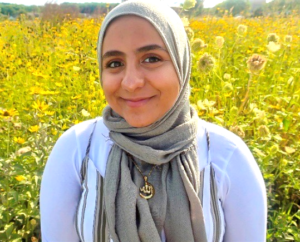Elijah Greg | Nate Grunow | Bethany Harman | Elle Honerbaum | Macie Janes |
Matty Olson | Makayla Parkin | Erin Trocke | Meriem Yahiaoui | Benjamin Muhr |
Cash scholarships were awarded to eight Dodgeville High School graduates who wrote essays in the Veterans For Peace essay contest in 2020. A careful reading of these essays will explain why Veterans For Peace Chapter 25 chose to recognize all the outstanding essays from Dodgeville. Elijah Gregg and Elle Honerbaum received special recognition for their heartfelt writing. See below for 2020 essays by Dodgeville High School students.
“It was a humid August day a few years ago during our extended family vacation in Washington D.C. As we approached the endless wall that laid before us, I began to notice a quiet somberness emanating from the people gathered around it. My grandfather, a veteran of the war in Vietnam, ran his finger along the wall, obviously searching for a name in particular.
Once he found it, he began to speak to us, which was out of character as he is typically reserved by nature. He told us that the name belonged to a friend of his who died on a tour of duty. Furthermore, the soldier had died serving a shift that my grandfather was supposed to work, but they had traded posts at the last minute. It was a very intimate moment with a man that, up until that point, I had never really recognized had lived an entire life that I knew nothing about.
Looking back at it now, the memory triggers an existential crisis of sorts within me. It need not be said that if my grandfather had died that day, my entire family would never have come to pass. All the experiences, memories, and relationships would have been lost with him. It also begs the question, what would have happened if that man had lived?
What family could he have begun and what lives were forever changed by his absence? The only absolute seems to me that the death of my grandfather’s friend was entirely avoidable. And if one were to apply the effect my grandfather’s life had, after narrowly escaped the clutches of death, to every fallen veteran in our nation’s history the world could be a much different place.
War as an instrument of diplomacy is much different now than it was in centuries past. Prior to the horrors of the first World War, people viewed war as an enriching experience. It could help raise the boys and give important tasks to the girls. However, modern warfare is much darker than the naive people of the 19th century believed possible. The ingenuity fostered in the Industrial Age gave birth to some of the most horrific weapons conceived in the history of mankind. Gases, bombs, and lead continuously dispensed into the awaiting bodies of young men shocked the world after the first World War. During the second World War, the development and usage of a new horror would terrify countless civilians for decades thereafter: the atomic bomb.
We have been lucky that since September 2nd, 1945, the major nations of the world have refrained from mass international warfare. But sometimes in history memories fade and the past ceases to function as a deterrent in the present. That is why it is crucial that we, as human beings, remember the grotesque nature of warfare.
We must keep the past alive in order to maintain peace in our time. That’s why we continue to communicate with our veterans about their experiences and keep alive the memory of those who gave the ultimate sacrifice. In that spirit, I find it pertinent to end my essay by honoring the man who kept my grandfather alive in Vietnam: I don’t know you personally sir, but I wish I could have. I will maintain the honor of your memory by fighting to make sure that we cease to have lives lost to the needless violence and chaos of war. Your death was an avoidable one, and that is evidence that our nation failed you. I hope to live to see the day that we no longer feel the need to wash our freedoms in the blood of our patriots. I truly hope to live to see the day that the world will come to recognize warfare’s consequences and will opt to abstain from its temptations as a result.
Thank you sir, for your sacrifice, and may you rest in peace.
– Elijah Gregg –

Nate Grunow
As a child, I remember fighting with my brothers over petty things, and I remember that whenever it was broken up by my parents they would tell me that we need to talk it out like adults. As someone who is just reaching adulthood, I have already found this advice to be helpful. Talking out issues I’ve had with friends instead of verbally or physically fighting has solved conflicts in a much more satisfactory manner than fighting ever would have. So with that in mind, the concept of war has always somewhat baffled me, as it often leads to a much less satisfying outcome for one party, and has plenty of negative repercussions for the other. War isn’t the answer to solving problems as it has a tremendous monetary and physical cost and has an unacceptable human and emotional toll.
Firstly, the physical and monetary cost of wars can be outstanding and extremely detrimental to a nation. For example, the war in Iraq was only projected to cost around $100 billion for a two year conflict. However as the conflict extended past that time frame, so did the cost, with the United States Department of Defense’s direct spending bill to over $750 billion. Brown University also estimated the cost, with interest on loans taken to finance the war, to total $1.1 trillion. For that debt to be paid off, each US citizen would need to pay an additional $3,300, or roughly five percent of the average household income in20l9. Additionally, during the Vietnam War, defoliants used to remove foliage destroyed 7,700 square miles of forest, which equates to roughly six percent of Vietnam’s land area. This destroyed area means that the habitats of many indigenous animals has been destroyed, pushing them elsewhere if not outright killing the animals. A peaceful solution, however, doesn’t often times doesn’t destroy land and slaughter animals and usually costs nothing.
War doesn’t only impact the environment physically and the nations involved financially, it also impacts the day to day lives of normal citizens and civilians. The act of invasion and destroying their homes and territory is the act of ruining not only their livelihood, but also what they’ve spent their life building up and making their own. Having their house, a safe space that was likely created over years of hard work and dedication to the house, tom away and reduced to rubble in seconds would be absolutely heartbreaking and devastating. Even then, the pain of having a home torn away and destroyed is nothing compared to the loss of a loved one. Having a loved one’s life taken away is absolutely devastating, emotionally and potentially financially, to a family, spouse, or significant other. A lot of times the member of the family in the military is someone who provides for the family too. Therefore, losing them not only devastates a family emotionally, it can take away someone who provides for the family either financially or physically, leaving the family in trouble. The act of killing over what is usually an idea or resource strips people of their livelihood and happiness, and creates more problems than it solves.
In conclusion, war isn’t the answer to solving problems because it costs an ungodly amount, financially, physically, and emotionally. For those reasons war seems to create more problems than it solves, and is therefore not the solution to any problem.
– Nate Grunow –
In Robert Fulghum’s book, All I Really Need to Know I Learned in Kindergarten, he explores how many of life’s most important lessons are the morals and ethics learned as a young child from the instruction and demonstration of parents. From birth, children are taught to treat others the way they want to be treated, including not getting into fights or arguments with others. Instead, children are taught to behave civilly and with kindness towards each other, regardless of their opinions. While the book was meant for children, it is applicable to adults as well.
Adults often seem to forget the morals taught to them as children and engage in arguments, lies, and a variety of other negative endeavors. This depreciation of morality and social values leads to a conflict-driven world where progress is hardly made without confrontation, and is especially prominent in national and international-level discussions. The attitude of conflict is becoming increasingly prominent in modem politics, and is too often aimed at opposing countries and their leaders, prompting politicians to exchange threats. Even nonviolent acts and conflicts between countries creates negative consequences such as trade embargoes, a deflated economy, and a host of other issues. Eventually, these issues can lead to catastrophic worldwide issues such as war between opposing forces, leading to meaningless deaths of many innocent people. Thousands of people die over a moral that, once taught in childhood, no longer holds meaning, the moral of civility.
Wars that begin seemingly well-intentioned have always turned into manslaughter and terrorism directed at people who are different from ourselves. For example, the wars between the United States and the Middle East have turned from the objective of eradicating terrorism to being focused on oil consumption. While it is important that terrorism be halted, constantly bombing innocent people for economic gain is neither morally nor ethically right. In fact, bombing the guilty people does more harm than good. The United States as a society has become complacent to the ruthless murder of foreign peoples through the extreme media exposure and frequency of such acts of violence. This complacency causes many people to simply accept that wars kill thousands of people whom we label as “collateral damage.” The bereaved people ultimately feel strong and warranted resentment towards America and other participating countries, and may become the next generation of American-hating terrorists. And so the cycle continues.
Another aspect of warfare that cannot be ignored are the nuclear capabilities of many of the world’s most powerful nations. There are bombs that can easily wipe out entire cities in one hit, and with the technology available to accurately send these missiles across the world at any time, it is critical to be diplomatic to all people, regardless of race, religion, language, or any other discriminatory factor. While America’s nuclear stockpile has decreased by 85% since the end of the Cold War, there are still an estimated 15,000 nuclear weapons left in the world. The total destruction of these weapons would entirely wipe out humanity, because not only do nuclear weapons harm whatever country they are intended for, but the nuclear fallout gets blown all over the world. Millions of people would get poisoned, all by the actions of one country. For this reason alone, starting a war with any country is a very bad idea, and peaceful measures should be sought out to resolve any conflict. After all, isn’t that what we were all taught in kindergarten?
– Bethany Harman –
Growing up, I have always been very in-touch with my emotions and heart. This has pushed me to chase peace, whether within myself or my world. Unfortunately, most of the conflicts in the world rarely reach peace, or any outcome close to it. Tragedy seems to occur constantly, and everywhere, often the result of purposeful human conflict. Wars seldom stem resolution, and always produce millions of deaths of innocent people. Not to mention, the massive budget America in particular spends on its military could be used instead to help solve domestic problems. With these many complications and obvious wrongs, there has to be a better way to fight for freedom and justice than spreading death in the never-ending conflicts known as war.
The budget of the United States’ military is roughly 700 billion dollars. In comparison, all public colleges and universities in the U.S. have tuition adding up to total less than 70 billion dollars. Although some degree of a self-defense budget is a necessity, this comparison shows the true colors of America’s values, and they do not appear to have anything to do with furthering young peoples’ lives. For many young, poor kids fresh out of high school, joining the military seems like the only viable option for a successful future. Because of the way recruiters target students of a particular class, it is obvious they understand the mindset of the poorest students, so they take advantage of their desperation. However, as is evidenced by the above data there is more than enough money to be shared in order to ensure quality, secure futures for all of America’s youth, without making enlistment the only option for poor students.
Because of the feeling of necessity many people face when choosing to enlist in a branch of the military, they often forget the extremely significant impacts war will have on their mind and body, if they live through combat. Numerous soldiers return from war with physical wounds, and around 15 percent of soldiers wind up with severe PTSD that affects them their whole lives. As a result of PTSD, many veterans are driven to suicide, domestic abuse, or poverty. Evidence of the lack of regard the U.S. government pays those who have fought on behalf of them is the high number of veterans that are homeless on any given day: around 40,000. While the U.S. government loves to have conflict in other regions of the world over issues mainly driven by money, the ones who have to fight ultimately pay the highest price.
While monetary expense and veteran suffering are both huge factors contributing to the negatives of war, the most noteworthy has to do with human life. Although many people in charge of various governments around the world may not agree, every single person living on Earth has just as much of a right to life as the next. While there are indisputably some people who are horrible and should be rehabilitated in progressive ways, the majority of society is made up of wonderful, decent human beings. For everyone bad guy wars fight to take out, millions of innocent people are accidentally killed, too; many are our own soldiers. Sometimes, the bad guys are replaceable, and the cycle of massacring thousands in hope of targeting one goes on for years, and even decades. While there are not many methods of peaceful negotiation that actually work to change the minds of the bad guys, violent war has just as many losses, if not more.
Overall, while war has its benefits for the few, many are left taken advantage of. young people enlist instead of continuing their education, and are left scarred at best, and dead at worst. Also included in the huge death toll are the millions of decent, kind humans who just happen to live in the wrong region of the world. Though the pro-war propaganda is widespread throughout the United States, hopefully the message of peace being spread overpowers it soon. As we all know deep down, war is not the answer to the problems in our world.
– Elle Honerbaum –
I was born into a very unpeaceful decade. Immediately following my birth was the terrorist attack on 911, then began the War On Terror, where in which the news was always present in my childhood. I remember all the negative effects of the War, specifically the recession in 2009 and all of its impacts on my family. Although I was a child when everything occurred, I feel that these events have not only changed me, but have poorly impacted my generation and peers; we as a generation have been influenced by many negative actions because of war and violence, and continue to view the world today in the same negative lens.
Because of how broadcasted this war was, my generation has been psychologically impaired and desensitized to the horrors of today. No person should have had the childhood where they can’t correctly understand or fathom the acts of violence they are forced to see in the news or in stories of the past. We have grown up in a time of economic struggle and terrorism, and little positive has come out of it. This traumatic experience for our country has also resulted in a collective trauma for my generation. Psychologists believe that children born near the 9/11 attacks are more likely to experience higher levels of stress in general and high stress after viewing the news or social media for extended periods of time. The childhood of my peers and myself has certainly created a negative impact and proves that war should not be the answer for any problem, as it creates many longer lasting problems for everyone involved.
Much of my family has been in active duty. My step-grandfather enlisted in the National Guard in 1957 and was honorably discharged in 1961. He never spoke of his enlistment until 2015. I was very close with my grandfather and he was a very peaceful and unargumentative man, which made picturing him in wartime nearly impossible. Much of my father’s family was in active duty as well, but they never spoke of their experiences to their family members. No one should have to face the psychological impacts and physical repercussions that come with the actions of war.
Violence does not need to be solved with more violence in any circumstance. Compromising is one way to create peace, although many find it hard to do so when their own morals are in question. We need strong leaders who view peace as important as many others do. We need to view the past as something we can learn from, avoid violent situations, and learn the ideals of many figures such as Gandhi. By recognizing our mistakes in the past and paying attention to history we can begin the transformation from a struggling society to a peaceful nation and world.
I don’t believe there is any reason to go to war. There are many other options to come to and violence should never be considered first. Although I’ve never seen peace, I can be hopeful that one day in my future, it will come.
– Macie Janes –
I believe in human rights. I believe in love. I believe that people are born innocent. I believe in the goodness of humankind. I believe in peace’s power, and I believe that war is not the answer.
It seems unrealistic to believe that a nation would welcome war with open arms. Not only would prospects of war bring about economic and logistic grief, it would also jeopardize the lives of the nation’s innocent citizens. No person deserves to live with daily fatal threats to their well-being looming over their conscience. No parent should worry for the safety of their child because they live in an area affected by war. No child should grow-up with a war-stricken homeland being their norm.
Furthermore, no person should have to sacrifice their own life for their country. Dying under the military’s watch should never be deemed a patriotic honor. It should be deemed an unnecessary and heartbreaking loss of life. War is not the answer because it leads to death.
It also seems unrealistic to believe that people are born with the desire to kill. I do not believe that members of the military who are actively engaged in war hold the connotations of the title “murderer.” However, I do believe that soldiers have been manipulated into thinking heinous war acts can be justified as a noble display of patriotism. If the act of murder is illegal under the laws of our country, it should not be accepted when used as a wartime defense. Wartime motivates one nation of people to view their opponents as an enemy, as lesser people. This way of thinking must be eradicated in order to prevent anyone from condoning their own murderous actions. Plainly, ending someone else’s life, for any reason, is unacceptable. War motivates good people to develop violent mindsets for the wrong reasons. War is not the answer because it leads to murder.
Everyone has learned the details of past wars in history class. Overwhelming statistics of the cost of war and the amount of lives lost in each are taught in an overtly desensitized manner. This must change. Students should be devastated by the deaths caused by each war, and no one should ever be taught that it is an acceptable part of life. People must heed the horrors of war, and should never support future wars or the continuation of war. Just because it has been the normal way of solving conflict in the past, does not mean that it should continue to be the answer. It is common to teach young children to never solve their disagreements with violence and fighting, but rather with words. This should hold true with all disputing nations. Effective means of communication lead to compromise, which is a tool that undoubtedly solves problems. War should never be the answer because there are so many other, nonviolent ways to solve problems.
War threatens human rights. War threatens love. War threatens innocent people and humankind. I believe that war is not the answer.
– Matty Olson –
With recent scares of a World War III occurring after tensions rose between the United States and Iraq, the prompt for this essay asking me to write about why I believe war is not the answer has a little more weight added to it. For centuries, wars have occurred amongst people. We have been learning about wars in history classes for years, but why do we fight? Why do we have wars? I do not believe that war is the answer; I do not think we need to fight.
Wars occur for a couple of different reasons: economic gain, territorial gain, religion, nationalism, and revenge. There are so many other ways we can go about resolving these types of conflicts that do not have to result in wars. Many people believe that war can help resolve conflicts and arguments between countries, but what they do not see is how many people are affected by all of the fighting. Wars have affected millions of individuals around the world. The people who wrote the Constitution gave Congress the power to declare war and gave the president the power to fight off sudden attacks. It is the government’s decision to risk the lives of American citizens to fight in some battles. Hundreds of thousands of people have lost their lives due to disputes amongst countries that could have been resolved if the leaders would have simply discussed with one another about what the quarrel was about. Thankfully, those in my family who have served in the military have come back safely, but millions of military family and friends have had to grieve over the loss of a loved one who were used in war efforts.
Wars also have a damaging effect on the minds of those who have fought. Veterans have a high probability of developing post-traumatic stress disorder, or PTSD. This has also been linked to a higher risk of suicide rates. According to the U.S. Department of Veterans Affairs (2018), there was an average of 16.8 veteran suicide deaths per day in 2017.” What soldiers have seen on the battlefield during wars is something that can be very difficult to come back from. Battling in wars have also caused veterans to be at a higher risk of drug and alcohol dependence or even homelessness. It is clear that fighting in wars results in numerous negative side effects for the citizens who were sent to fight during a war.
Due to all of the different negative effects fighting in a war can potentially cause, I do not believe that war is the answer to solving a dispute between different nations. Just like arguments between individuals, conflicts between countries can be resolved by agreeing on a time to discuss, expressing the problem or concerns, listening to each side, asking questions, and seeking a common agreement. With these simple steps, we can teach future generations that war and fighting is not the answer. Teaching these steps can guide the younger generations about the significance of nonviolence in order to resolve issues at hand. If we as a society can share this idea, the world could come together in unity and war will not have to be our first option when a conflict appears.
– Makayla Parkin –
“Only the dead have seen the end of war.” (Plato)
When war is the chosen solution, it may appear to resolve the initial problem, but it gives rise to many more. The violence of war facilitates more violence. Suffering creates more suffering. Hatred is kindled and prejudice spreads like a wildfire. The horrors faced, the immense cost, and the treatment of former veterans despite that cost all prove the overarching negative impact of war. Considering these stated issues and many others not mentioned, it is proven that war is not the answer and diplomacy should take its place.
Soldiers and civilians in war don’t escape with mere physical wounds, but emotional ones as well. Societies are destroyed and families displaced–whether these families be the so called “enemy” or our own people is of no significance. With war, one nation is immediately set against another, and this bias becomes ingrained in that society. Distrust circulates to the point where some may not even fully trust their neighbors. For example, the US and lran have treated each other horribly, leading to lran’s complete distrust in the West and chaos in most of the Middle East. When past events are all that is considered, one nation regards another with suspicion leading to an inability to think beyond what has happened; this paranoia could be the world’s undoing. Without trust, our nations will never grow, but without peace, trust will never build.
War not only causes hardship, grief, and agony, but economic strife as well. The cost of a war is waved far too easily, whereas the idea of funding public education or a form of government funded healthcare is considered too vast a cost to even fathom in the eyes of the very people who spend three quarters of a trillion dollars a year on our military. This excessive expense causes havoc to both other nations and our own. Veterans, despite their reassurance that post-war they would have medical bills paid for, are disregarded. Our military spending is backwards as we spend billions on bigger, deadlier weapons rather than the veterans who’ve faced these wars directly when they shouldn’t have faced war to begin with. A young person is promised so much by the military-healthcare, education, and housing, yet nearly all promises have a catch. l’ve spoken to veterans who have said they would never wish war upon another person; the same veterans who currently have cancer caused by Agent Orange or are living on the streets. One wonders why the military spends so much but does not even treat their former “heroes” with decency.
The loss of a friend, a family member, the horrors those serving have faced, the societies and homes destroyed, nothing can make up for that; however, we can learn from these horrors and make an effort to avoid them in the future. Diplomacy needs to be the world’s answer to political and economic issues. Disputes solved with violence never resolve all issues, but merely cause more. Whether a war is fought due to different beliefs, resources, or violent acts, conflict is never the only solution, and it should never be preferred. Some look to war for a chance at glory, without realizing the extensive devastation that comes with it. With these issues, it is clear that something needs to change, but the promise of change can only be achieved through the civilian demand. Citizens allow all of this to happen; Hitler gained his power legally, granting a path for Nazi Germany to rise. lf our community is not aware of the reasons for war, the cost, and finally the overarching impact of the war itself, we will never be fully capable of ending the horrendous violence and evil that encompasses war. Educating the populace is the first step in ending this barbarity. With a populace that is opposed to violence, there is a potential for diplomacy to rise rather than brutality. lf all civilians fully understood everything that comes with war–and it is a hard thing to understand-than perhaps we would not have as many issues being resolved with force. With this education, there could be a chance for growth.
We cannot make up for the past, but our future is not necessarily determined by it. With a rise in diplomacy and a resistance to violence we can make a difference. We can change.
– Erin Trocke –
Madison LaFollette High School
Essay Contest Scholarship Recipient — 2020
The winner of the Madison high school James Allen peace scholarship for 2020 is LaFollette HS senior Meriem Yahiaoui. Meriem plans to attend Madison Area Technical College (Madison College) beginning this fall. This scholarship is awarded annually to the winning essay submitted by senior students from the five public high schools in Madison (West, East, Memorial, LaFollette and Shabazz.)
Meriem’s essay addressed the importance of eliminating childhood violence in her essay entitled “Why I Believe Violence is Never a Solution.”
She will enroll this fall in the two-year liberal arts transfer program. Her ultimate goal is to start at Madison College, then transfer to the University of Wisconsin to complete a baccalaureate degree in the field of social work. This award will provide a strong boost to the start of her educational journey.
River Valley High School
Essay Contest Scholarship Recipient 2020
“There is no flag large enough to cover the shame of killing innocent people.” – Historian Howard Zinn.
lmagine explaining the concept of war to someone who has never been exposed to the idea. Naturally, you would never be able to find such a person as war is such a prevalent concept in our cultural subconscious, but if you could find such a person, how weird would it seem? For any multitude of reasons (a stagnated economy, tariffs, the pride of the influential, or even just their sheer boredom) nations will ship off thousands of their young men at a time to maim and kill each other for months or years at a time. Where is the sense in that?
War is a fascinating thing to ponder. Conflict is a natural part of life, and new conflict will spring up almost as fast as we can resolve it. That’s just how it is, but to extenuate that conflict to include thousands of unrelated people and parties, of which a not inconsiderable portion will die, seems like madness. Maybe madness is not the right word. Maybe hubris is more apt. I find it impossible to fathom the amount of pride and narcissism it would take to condemn so many, or even one, of your countrymen to such a fate for the sake of your direct profit or national pride.
Please do not misconstrue what I say. There are a very few valiant reasons to engage in
conflicts. Our liberty, as fought for in the revolution. The liberty of others, as fought for in our civil war. And the life of others, as fought for in the second World War. However, these conflicts should have been a last resort, where words and reason were killed by the hubris and bullets rose up to take their place. Then there are the bad reasons to fight a war, ones where diplomacy should never have not been the only option. lt does not matter how much land you annex, all the trade routes you won, nor how much oil you can take away, no amount of material gain can ever justify the loss of human life.
I have made my points of view clear to all of my close acquaintances. All of my family know of my stance, the overwhelming majority of whom are veterans. I am constantly criticized for my contempt for our actions in the Middle East. “The military builds moral character and discipline,” they tell me. Can I not learn discipline from other places? Can I not build a strong sense of morality in other ways? “You aren’t patriotic since you aren’t giving back to your home country”. Does community service not count? Do soup kitchens or charities that help the hurt veterans sent off in the first place not help Americans? “You are just afraid to die.” No, I fear the moral implications of killing.
We, as Americans, have a moral code centered on three main concepts as laid out in
our constitution: everyone has the rights to Life, Liberty, and the Pursuit of Happiness. It only seems wrong to so eagerly partake in an action that robs others of those such things.
Why I Believe War Is Not the Answer
Richland Center High School
Governments use war to have an outcome of a victor but I do not think that war is the answer. War is defined as a state of armed conflict between different nations or states or different groups within a nation or state.
A key word in that definition is “armed”, but why? The reason is because when a certain country or government wants something and does not get it at the request, the mentality is – take it with force. Using force for things that are wanted is not ok, conflicts will happen but using violence as the solution is not. There are better solutions to get through conflicts and disagreements.
My mother who works at a Veteran Affairs hospital has had hard times when coming home from work because of the difficult situations and stories that have happened to her. My mother explains how these veterans who have Post Traumatic Stress Disorder (PTSD), paranoia, depression, and many other health and mental illnesses feel like they have nothing. Most of the time these veterans have illnesses because they were in a war zone, exposed to toxic chemicals, and learned how to think like a soldier.
As an example, one night my mom was crying because she was dealing with a patient who passed away from a suicidal death. When these veterans are discharged and back to civilization, their mentality is not the same as before because they were conditioned to survive in a whole different way. Some veterans who come home mentally cannot function in normal society so they self-isolate which tears them down more of a person. Then these people become mentally worse to where they are not able to reach out for help.
War is not just gun zones, bombs, and death but it is being away from home, not being a
part of society, and affecting everyone. My mother works in the health care to help people but it is hard when someone does not want to help themselves. One not being able to help themselves because of being a part of war and coming back with mental illness and resulting in death is not okay. War has so much power of killing people in and out of battles that it is not ok.
In big cities sometimes you will see homeless who are veterans. These people served and were in war but they came back and discharged but only to find out they lost everything. These people do not have the option to turn to resources because they do not have money or just do not have access to resources. No one deserves coming home and being homeless.
My father immigrated to America from El Salvador in the late 70’s to early 80’s to escape the wars that were going on. War zone was literally in the streets, men with big guns, corpses everywhere, and no nighttime. For anyone to have seen that would be very traumatic. No one was able to leave their houses for absolutely anything and that’s including groceries, to play, or for a walk. For my father leaving everything and risking his life to escape that is brave. War affects families, health workers, and society as a whole.
The effects of war touch everyone, this is why I believe war in not the answer.











